7. Mala Noche (Gus Van Sant, 1985)
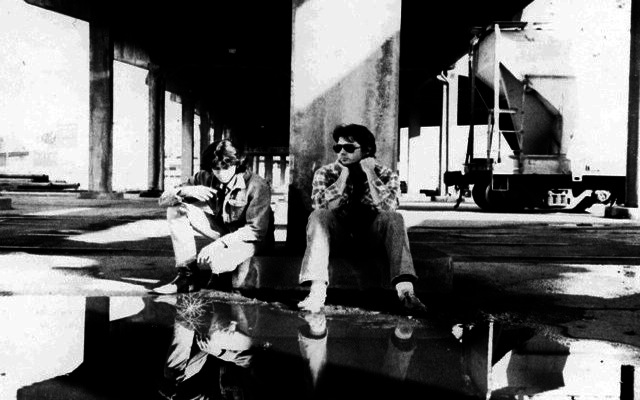
Gus Van Sant’s debut film puts his obsessions and themes on the table early in his career. Social constrictions and normalizing behaviours are doubted in this tale of unrequited love. Few love stories can turn crazier than one that is one-sided. Walt (Tim Streeter) falls in immediate love with a Mexican immigrant named Johnny (Doug Cooeyate). The Mexican kid doesn’t seem interested in Johnny at all, and he even rejects Walt’s homosexual implications.
In this free-spirited tale, Walt has an affair with one of Johnny’s friends, but he stills try to hit on him. In an unclear game of relationships, Van Sant introduces a mix of class and race struggle along with sexual discrimination into Walt’s desires and frustrations. In this clash of minorities, we see how Walt will never give up on his love interest.
8. Something Wild (Jonathan Demme, 1986)
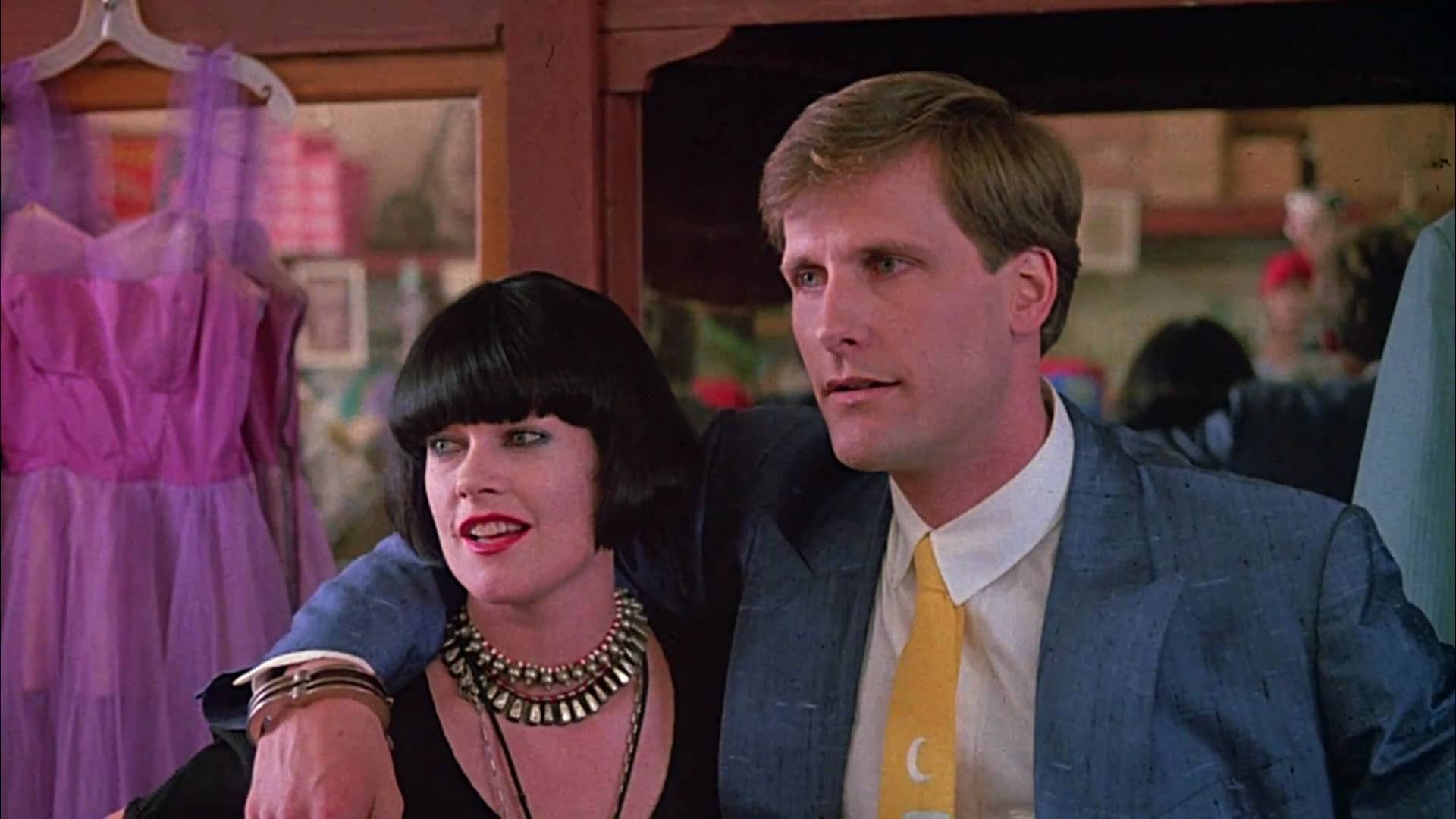
Before the release of Oliver Stone’s cult classic “Natural Born Killers” (1994) came this wild love tale about two bandits on the road. Even if one of the bandits is there involuntary, the film remains a love tale about the lack of emotional thrill inside a traditional life in the United States in the 1980s.
Melanie Griffith’s sparkling performance concentrates on the exciting sense of danger that makes Charles (Jeff Daniels) quickly lose his head, even if that means losing a stable job.
Demme’s film is fast paced and puts audiences in the same place as Charlie: waiting to see what next step this thrilling woman might take. With a soundtrack from heaven, featuring David Byrne playing the theme and The Feelies playing a David Bowie cover, the music and the pace of the film has a punk rhythm where it feels so easy to fall in love.
Not giving special attention on credibility, and always taking everything to the extreme, Demme shows how an Amour Fou is about being removed from our comfort zone, and how passion can makes us explore emotions that we didn’t believe were there.
9. A Short Film About Love (Krzysztof Kieslowski, 1988)
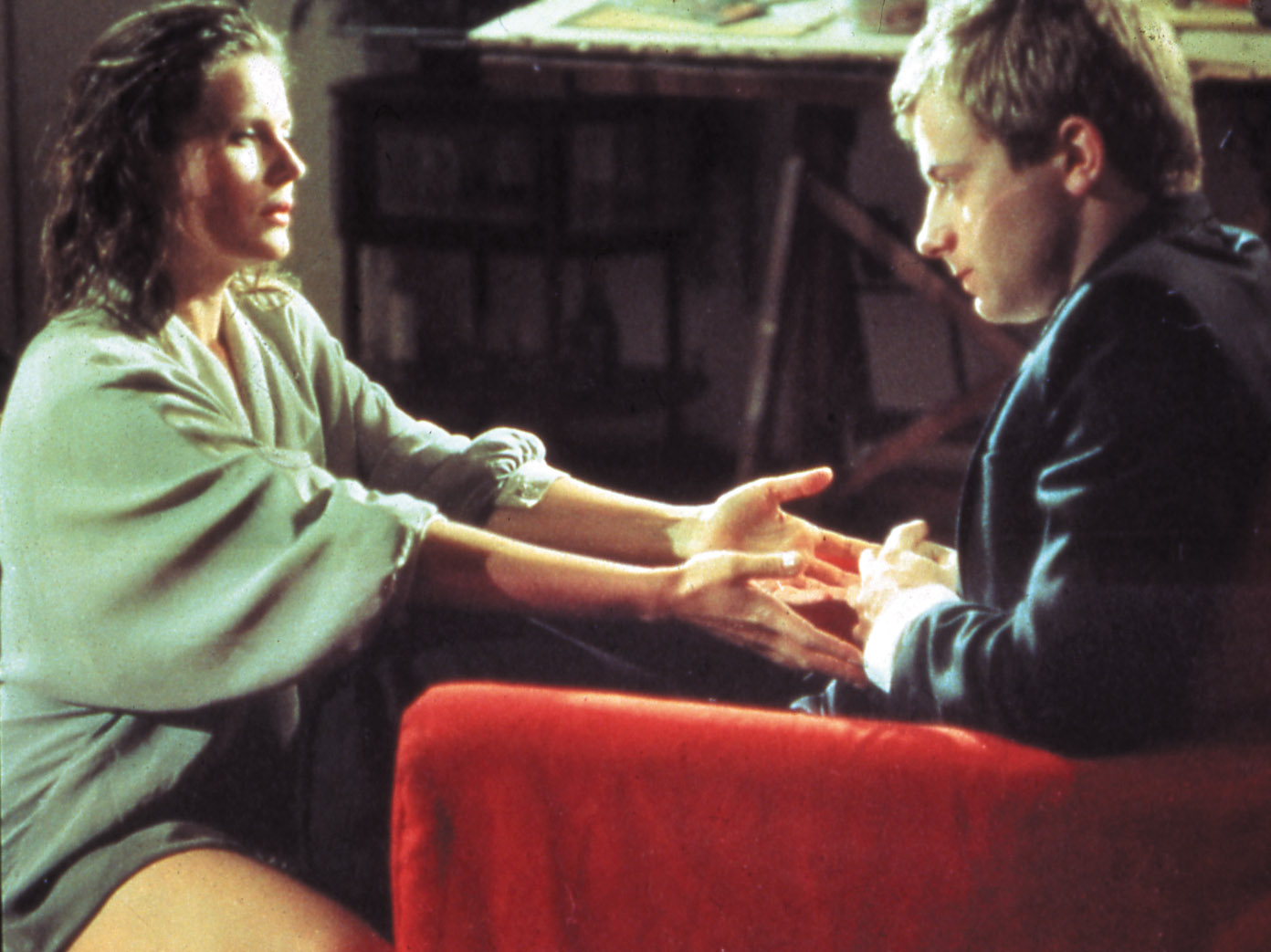
Like in “Mala Noche”, there is no need for one to be desired and wanted to be madly in love. In Krzysztof Kieslowski’s film, there isn’t even a counterpart knowing the existence of her lover. A young worker named Tomek (Olaf Lubaszenko) spies everyday on the apartment of a woman named Magda, and closely follows her love affairs. Tomek starts to grow obsessed with Magda, and despite their lack of contact, his obsession with her gets stronger.
However, Tomek is more interested in her routine than her lovers, which seem to make him suffer. The young boy turns away his telescope anytime she is about to have sex. This painful one-sided love takes a further turn when he starts making a plan for them to meet. This film shows that you don’t need to actually know the other person to be madly in love, you just need to feel extremely lonely and be unable to find any emotion in everyday life.
10. The Lovers on the Bridge (Leos Carax, 1991)

Much like with Jean-Luc Godard, love in Leos Carax’s films is always improbable, and his couples are always linked by destiny or pure chance. In “The Lovers on the Bridge”, there is a matter of survival. Michèle (Juliette Binoche) is losing her sight a little bit every day due to a rare disease, and she needs the help of Alex (Denis Lavant) to get through each day.
It is not very clear why and how they ended up together, but this dependence makes them lovers, and in a weird way, Alex and Michèle love each other madly.
Events in Carax’s films always seem kind of random, and the different ways Alex and Michèle enjoy their romance together is no exception. But it is the possible cure for Michèle that turns their love into craziness, as Alex see a chance of losing his love when she will be no longer need to depend on him. It is a bleak view on the logics of love, but with tons of tenderness within.
11. The Living End (Gregg Araki, 1992)
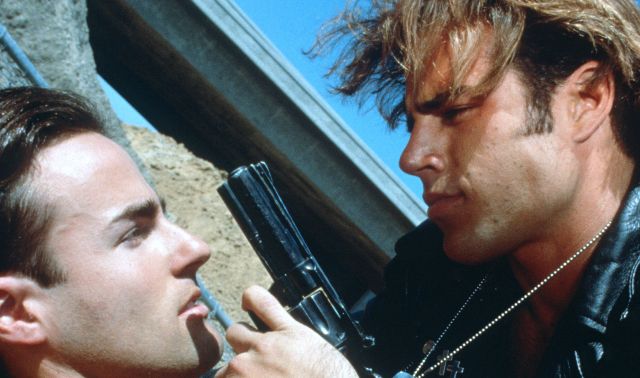
Gregg Araki produced a rush of angst-filled films that shaped the new queer cinema vision. Araki (as well as filmmakers like Todd Haynes and Gus Van Sant) didn’t want to show homosexual love as “healthier” in a way to look for audience acceptance. Instead, Araki shows his romances as a travel through angst, a total rebellion that includes self-destruction.
The romance between a hustler (Mike Dytri) and a pessimist film critic (Craig Gilmore) is a dangerous journey, following two characters inside a film that starts with a “fuck the world” sign. The only connection they find in the middle is sex and a fiery angst against a society that makes them fail. They can’t help but fight and hate each other as their relationship goes forward, but it seems that these problems only make the couple stronger.
The only solution on this sex drive seems to be the total destruction of the couple, and Araki goes deep in showing this destruction as an expression of an obsessive love, and a couple who were only able to have each other in the end.
12. Bitter Moon (Roman Polanski, 1992)
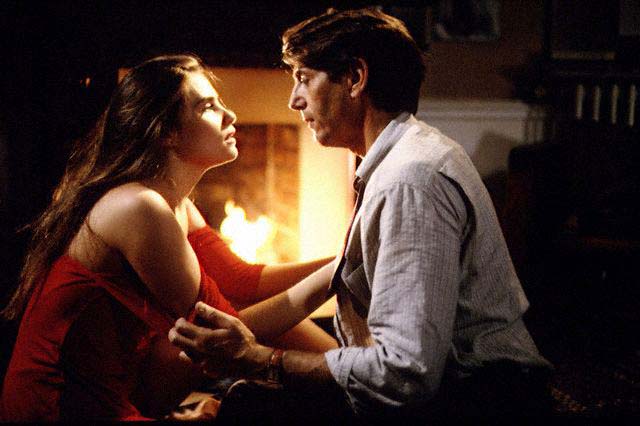
Desire is always a key element in depicting obsession in love. Roman Polanski films his wife Emmanuelle Seigner as Mimi, the object of desire of Oscar (Peter Coyote). In a series of flashbacks, a couple tries to understand the logic behind Oscar and Mimi’s relationship. Polanski makes a heavy contrast between a normative love with Nigel (Hugh Grant) and Fiona (Kristin Scott Thomas), and this obsessive and sexual passion that sparkles between Oscar and Mimi.
Even if Oscar is in a wheelchair, and Nigel knows this was Mimi’s fault, he can’t help but get fascinated by the tales of Oscar about his different sexual practices in the past. Sadistic experiences and masochistic pleasures scare Nigel, but at the same time it makes him aware of a kind of free sexuality he could never feel in his several years of marriage.
Once again, the Amour fou is provoked by this possibility of finding real excitement and feeling thrilling emotions outside what a regular job and marriage can provide. “Bitter Moon” is the most sexual movie released by Polanski, and it is still a movie that provokes strong reactions. It seems that Polanski is telling us that there is no real pleasure in regular and shy sex, and that love is impossible to separate from these experiences.
13. Three Colours: White (Krzysztof Kieslowski, 1994)
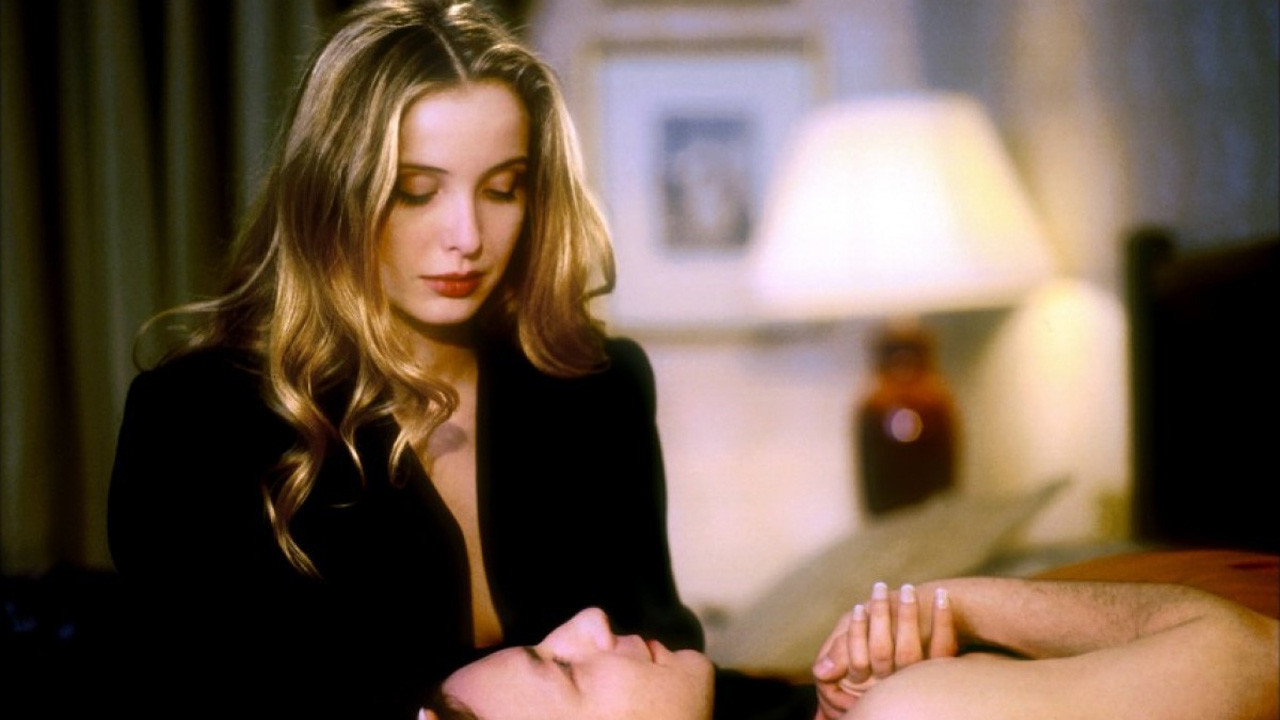
Described by some critics as an anti-comedy, “Three Colours: White” shows what a humiliated love can do to gain back its dignity. After losing his wife and going through a confusing divorce, Karol Karol (Zbigniew Zamachowski) loses his money, residence and any kind of support. Later, Karol’s only objective is to take down Dominique (Julie Delpy) and earn back his pride after this humiliation.
Exploring his country’s political behaviors through a decaying love, Krzysztof Kieslowski is able to portray how the end of a romantic relationship can become a complex power struggle where someone has to win. Karol loses his money and dignity, but more importantly, he loses his power, and with that gone, he goes insane on a greedy search for revenge. A politically humiliated country and its reaction is mirrored on this poor humiliated guy, who goes crazy for humiliation in love.